|
 Secure Site
Secure Site
|
 |
Archive for the 'sleep' Category
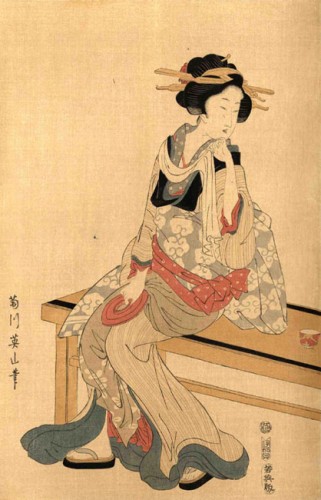 Getting the Sleep of Your Dreams - Choose a Soothing Alarm Clock We are a sleep-starved nation. Sixty-three percent of American adults do not get eight hours of sleep at night, about 70 million suffer from insomnia, and according to the National Sleep Foundation, nearly seven out of ten report frequent sleeping problems—although most remain undiagnosed. Alarmed? You should be. As Stanford University “sleepdebt” expert William C. Dement, MD, PhD, warns: “Lost sleep accumulates as a debt that must be repaid or health eventually deteriorates.”
This year, the Institute of Medicine released a report linking sleep disorders and sleep deprivation to a host of ills, including an increased risk of hypertension, diabetes, obesity, depression, heart attack, and stroke.
Scientists are confirming what yogis and ayurvedic physicians have reported for centuries: deep sleep rests the body and the mind. Our daily dose of shut-eye regulates our weight, strengthens our immunity, protects our cardiovascular health, repairs our tissues and cells, and restores our energy. Sleep also allows us to process, consolidate, and retain new memories; it balances our emotions, makes us better problem solvers, and feeds our creativity.
But according to yoga, deep, refreshing sleep has an even more important function: it helps us stay spiritually balanced. The ancientrishis (seers) classified sleep as one of the four fountains, or primitive urges (along with food, sex, and self-preservation), that operate at an instinctual level to maintain our survival. When one of these fountains is out of balance, it can imbalance the others, creating obstacles to spiritual growth. For example, when we skimp on sleep, we tend to overeat and imbalance the “food” fountain. Scientific research confirms this: A recent Stanford University study found that the less sleep people got, the heavier they were. Shorter sleep duration boosts our level of ghrelin, a hormone that makes us feel hungry, and suppresses another hormone called leptin, which makes us feel full. And at Case Western Reserve University, researchers who conducted a long-term study with 68,000 women over 16 years found that women who got fewer than five hours of sleep each night were much more likely to gain 33 pounds or more—despite the fact that they ate less than the seven-hour sleepers.
When we fail to get enough sleep, our anxiety level rises, too, disturbing the “self-preservation” fountain. Plus, it’s difficult to maintain a yoga practice when you’re overtired. Who wants to get up early to meditate after tossing and turning all night? Missing our practice can throw our whole day off balance and, worse, feed the cycle of insomnia.
 Wake up with gradual, beautiful acoustic chimes. The Zen Alarm Clock transforms your mornings and gets you started right, with a progressive awakening Instead, wake up refreshed, love your alarm clock, transform your mornings with The Zen Alarm Clock’s progressive awakening with gentle chimes.
Boulder, Colorado—an innovative company has taken one of life’s most unpleasant experiences (being startled awake by your alarm clock early Monday morning), and transformed it into something to actually look forward to. “The Zen Alarm Clock,” uses soothing acoustic chimes that awaken users gently and gradually, making waking up a real pleasure.
Rather than an artificial recorded sound played through a speaker, the Zen Clock features an alloy chime bar similar to a wind chime. When the clock’s alarm is triggered, its chime produces a long-resonating, beautiful acoustic tone reminiscent of a temple gong. Then, as the ring tone gradually fades away, the clock remains silent until it automatically strikes again three minutes later. The frequency of the chime strikes gradually increase over ten-minutes, eventually striking every five seconds, so they are guaranteed to wake up even the heaviest sleeper.
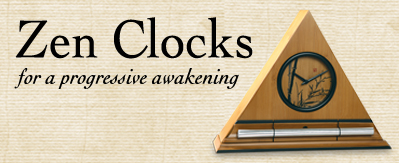 Soothing Chime Alarm Clocks with Natural Acoustic Sounds Now & Zen – The Soothing Chime Alarm Clock Store
1638 Pearl Street
Boulder, CO 80302
(800) 779-6383
Posted in Bamboo Chime Clocks, Now & Zen Alarm Clocks, Progressive Awakening, sleep, Sleep Habits
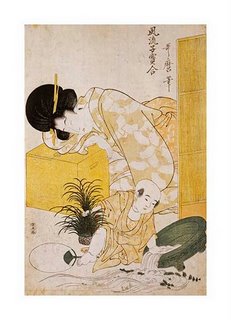 How to Get That Extra Hour of Sleep: UTAMARO, Kitagawa, A Mother Dozing While Her Child Topples a Fish Bowl Amid the hustle of every day stress, there are some simple steps people can take to get a better night’s sleep.
“You need to set aside the time for sleep. You need a few hours to unwind before. It takes time for the brain to wind down,” said Dr. Charles Czeisler, professor of sleep medicine at Harvard Medical School.
At Northside Hospital Sleep Disorders Center Roberts was taught “sleep hygiene,” — a healthy routine that should be practiced before bed.
Stimulants — soda, chocolate, any kind of caffeine — should be avoided at least four hours before bed, she said. She also said that you should not exercise three to four hours prior to sleep. Eating a light meal and eliminating alcohol consumption also helps. And lights should be dimmed and the TV turned off to help prepare the mind to relax into a slumber.
And calling it an earlier night may show some benefits. In a 2009 study published in the New England Journal of Medicine, heart attacks in Sweden rose by 5 percent in that first week of spring, when many people were adjusting to losing an hour of sleep. In the fall when the clocks are reset, heart attacks dropped, according to the study.
 Alternative Alarm Clock - for a Soothing, Progressive Awakening Boulder, Colorado—an innovative company has taken one of life’s most unpleasant experiences (being startled awake by your alarm clock early Monday morning), and transformed it into something to actually look forward to. “The Zen Alarm Clock,” uses soothing acoustic chimes that awaken users gently and gradually, making waking up a real pleasure.
Rather than an artificial recorded sound played through a speaker, the Zen Clock features an alloy chime bar similar to a wind chime. When the clock’s alarm is triggered, its chime produces a long-resonating, beautiful acoustic tone reminiscent of a temple gong. Then, as the ring tone gradually fades away, the clock remains silent until it automatically strikes again three minutes later. The frequency of the chime strikes gradually increase over ten-minutes, eventually striking every five seconds, so they are guaranteed to wake up even the heaviest sleeper. This gentle, ten-minute “progressive awakening” leaves users feeling less groggy, and even helps with dream recall.
adatped from abcnews.com by LARA SALAHI
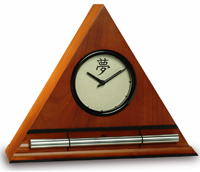 Alternative Alarm Clock - The Zen Clock with Chime Now & Zen – The Alternative Alarm Clock Store
Real Acoustic Alarm Clocks with Chimes and Gongs
1638 Pearl Street
Boulder, CO 80302
(800) 779-6383
Posted in Bamboo Chime Clocks, Natural Awakening, Now & Zen Alarm Clocks, sleep, Sleep Habits
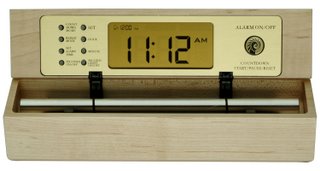 chime on the hour clock with real acoustic chimes In addition to functioning as a chiming alarm clock and countdown timer, the Digital Zen Alarm Clock can be set to chime repeatedly at any set interval, and to chime once on the hour every hour. The chime’s “B tone” has been hand-tuned using the ancient Pythagorean method-the clock’s tone is the same as that produced by tuning forks used by musical therapists. And not only does the Digital Zen Alarm Clock sound beautiful, it looks beautiful as well. Its solid hardwood case is an attractive addition to an altar or mantel. Our company, Now & Zen, began in 1996 with the introduction of our now world famous Zen Alarm Clock (the original table-top model). Although we have developed many new products since then, nothing we have produced has generated the excitement and anticipation of the Digital Zen Alarm Clock.
 sleeping woman, wake up to soothing chime alarm clocks Now & Zen
1638 Pearl Street
Boulder, CO 80302
(800) 779-6383
Posted in Bamboo Chime Clocks, Now & Zen Alarm Clocks, Progressive Awakening, Pythagoras, sleep
How Do My Sleep Needs Change As I Get Older?
 sleep needs change as we age Reena Mehra, M.D., Prof. or Pulmonology, Critical Care & Sleep Medicine, University Hospitals Case Medical Ctr.
Question: How do my sleep needs change as I get older?
Answer: So the amount of sleep that we need changes over the course of our age spectrum.
Neonates (infants) need approximately 18 hours of sleep at least, and adolescents need approximately ten hours of sleep, middle-aged adults, seven to eight hours of sleep.
And in older individuals, it is thought that perhaps they need less sleep, but more likely what is going on is the prevalence of many types of sleep disorders, such as sleep apnea, restless leg syndrome actually increase in prevalence with older age.
It is not as necessary to be jolted out of bed by ones alarm clock as we age. A soothing, gentle, chiming alarm clock is ideal. The maker’s of the chime Zen Alarm Clock aave been the first in this market to use an acoustic chime to do the trick.
Our circadian rhythm also undergoes changes associated with aging. So in adolescents, for example, they may be more likely to fall asleep later and sleep in, whereas older adults may be more likely to fall asleep earlier and wake up earlier.
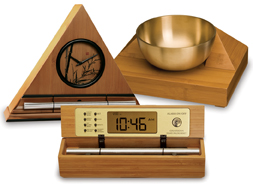 gentle alarm clocks are needed as we age Now & Zen Headquarter Store
1638 Pearl St.
Boulder, CO 80302
(800) 779-6383
Posted in Bamboo Chime Clocks, sleep
 The Perfect Sleep Routine Tip: The Perfect Sleep Routine
Morning
Wake up to your Zen Alarm Clock at the same time every day, whether that’s 5:30 or 8:30. This ritual will help maintain your circadian rhythms and make it more likely you’ll fall asleep at the same time every night, too. (Yes, you can sleep an hour later on weekends.) As soon as you wake up, “get into some sort of daylight situation really quickly, even if it’s just stepping out on a balcony,” suggests sleep expert Joyce Walsleben, R.N., Ph.D. Bright light suppresses the production of melatonin, a sleep-inducing hormone in your brain, and helps set your body clock. If you’re going to have coffee, this is the time. Walsleben recommends that women avoid it from noon on, and limit their morning dose to a cup or two. And keep in mind that “if you drink an 8-ounce cup in the morning,” cautions Rubin Naiman, Ph.D., “you may still have small amounts of caffeine left in your blood at bedtime.”
Afternoon
At lunchtime, choose wisely: An animal study published in the journal Cell Metabolism in November 2007 linked a high-fat diet with a disrupted circadian clock. At least three hours before bed, get some exercise that raises your heart rate. “Aerobic exercise in the late afternoon — even just walking home from work — can help you burn off the stress of the day and raise your body temperature,” Walsleben explains. “This has the potential to deepen your sleep later on.” Also, avoid taking siestas during the day to help maintain your sleep drive.
Evening
Eat dinner several hours before bed to give your body time to digest, and avoid spicy or heavy foods if you’re prone to heartburn. If you drink wine or beer, do so “three or four hours away from bedtime,” advises Walsleben; while alcohol may speed the onset of sleep, it can disrupt the sleep cycle later.
Night
Avoid watching intense TV shows, paying bills, or engaging in other stimulating activities an hour or two before bedtime. Instead, dim the lights to stimulate the release of melatonin and do a few relaxing yoga poses (such as Legs Up the Wall and Child’s Pose) or 10 minutes of deep breathing or meditation. If you have a bathtub, use it. (Adding relaxing lavender oil will help.)
adapted from Body + Soul Magazine, May 2008 by Sarah Schmelling
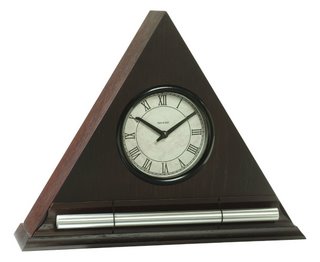 Dark Oak Zen Alarm Clock with Chime, the original progression clock Now & Zen’s Alarm Clock Shop
1638 Pearl Street
Boulder, CO 80302
(800) 779-6383
Posted in Bamboo Chime Clocks, Japanese Inspired Zen Clocks, Natural Awakening, Now & Zen Alarm Clocks, Progressive Awakening, sleep, Sleep Habits, Well-being
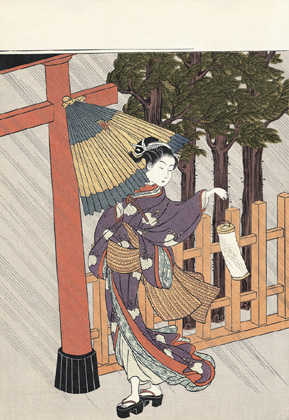 Harunobu Suzuki, Beauty at Shrine in Rain - Eliminate Your Snooze Button Clock for a Longer Life... Waking up in the morning should be as pleasant as falling asleep at night. The Zen Alarm Clock’s gradual, gentle awakening is transformative.
The Walnut Digital Zen Clock’s long-resonating Tibetan bell-like chime makes waking up a beautiful experience – its progressive chimes begin your day with grace. When the clock’s alarm is triggered, the acoustic chime bar is struck just once … 3-1/2 minutes later it strikes again … chime strikes become more frequent over 10 minutes … eventually striking every 5 seconds until shut off. As they become more frequent, the gentle chimes will always wake you up – your body really doesn’t need to be awakened harshly, with a Zen Clock you’re awakened more gradually and thus more naturally. Unlike artificial recorded sounds coming out of a tiny speaker in a plastic box, natural acoustic sounds transform your bedroom or office environment.
The Digital Zen Clock also serves as a countdown and interval timer for yoga, meditation, bodywork, etc.; and it can also be set to chime on the hour as a tool for “mindfulness.”
Digital Zen Clocks feature a “high” and “low” chime strike volume control, which allows you to adjust the sound of the chime to suit your needs. The Digital Zen Clock runs on 2 AA batteries (not included) and can also be plugged in with the included AC jack. The clock includes a lighted digital display (which can be set to be lit full-time when plugged in).
 Zen Alarm Clock with Gentle Chime Sequence Now & Zen’s Chime Alarm Clock Store
1638 Pearl Street
Boulder, CO 80302
(800) 779-6383
Posted in Bamboo Chime Clocks, sleep, Sleep Habits
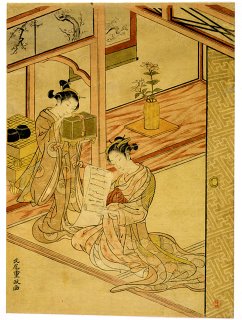 Banish Your Snooze Button Alarm Clock - Choose the Alternative Zen Alarm Clock Do you know that having a wonderful day starts from your bed and with the first sound you hear when you wake up? Yes, your morning mood affects your day and it could start right when you calmly and peacefully wake up to the beautiful sound of your Digital Zen Alarm Clock.
Now & Zen, Inc. – has taken one of life’s most unpleasant experiences (being startled awake by your alarm clock), and transformed it into something pleasant. “The Zen Alarm Clock,” uses soothing acoustic chimes that awaken users gently. When the clock’s alarm is triggered, its chime produces a long-resonating, acoustic tone. Then the clock remains silent until it automatically strikes again three minutes later. The frequency of the chime strikes gradually increase, striking every five seconds.
 Digital Zen Alarm Clock with Chime
Now & Zen’s Digital Zen Alarm Clock Shop
1638 Pearl Street
Boulder, CO 80302
(800) 779-6383
Posted in Bamboo Chime Clocks, sleep, Sleep Habits
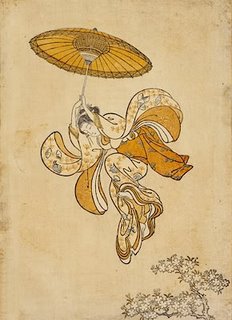 how to find balance
By David Scrimgeour, LAc
It’s 10 o’clock and you don’t know where your life is. You haven’t been sleeping well, and you’ve got a major presentation at work first thing in the morning. Your mother called two hours ago and can’t find hAer hearing aid (that’s the second time today), your daughter’s got a bad cold, and your husband thinks the two of you are growing apart. And you feel like you hit the wall weeks ago.
Sounds extreme, but a patient walks into my acupuncture practice and tells me some variation on this vignette practically every day. She’s physically run-down and emotionally spent. And while she’s aware of the stress in her life, she hasn’t really connected it to the symptoms she’s experiencing—symptoms that tell me she’s suffering from adrenal depletion, what’s commonly known as burnout.
And I’m not the only one who sees this type of patient. The Women to Women Clinic in Yarmouth, Maine, has given thousands of adrenal function tests and reports that only about 1 percent of them come back normal. The other 99 percent indicate some form of adrenal dysfunction—from fatigue to collapse.
Today the rates of burnout, especially in the US and the industrialized world, are growing astronomically as more and more people experience prolonged periods of high stress, exposure to a more toxic environment, a general imbalance in lifestyle (typified by inadequate sleep, too little exercise, and lack of a nourishing diet), and frequent states of being physically exhausted and emotionally overwhelmed. Burnout develops gradually as a person’s vital energy and effectiveness erode into fatigue and, ultimately, a failure to adapt to the changes and stresses of life.
The Fire Within
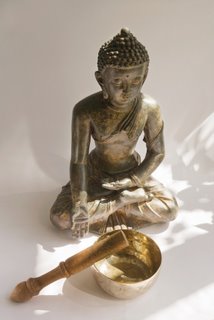 Singing Bowl Alarm Clocks by Now & Zen Ironically, burnout stems from an exquisite system designed to save us from bodily harm when we come face to face with imminent danger. Here’s the drill: Once your brain senses some kind of menace, your heart starts to race, you can jump or run like never before, you become hypervigilant, and mentally alert—all in an instant. Why? Because your body’s central nervous system has switched to fight-or-flight mode. The adrenal glands pump out adrenalin, cortisol, and other hormones that affect your heart, lungs, circulation, metabolism, and immune system. Heart rate and blood pressure increase to bring more blood to the muscles (to flee or fight) and the brain (to make split-second decisions). Blood sugar rises to increase fuel for energy, and the blood’s clotting ability increases in case you get injured—everything, in fact, that will allow you to either run away from the impending danger or fight to protect yourself.
Obviously this is a great emergency tool kit to have, and its sole purpose is to save your life in the event of an unexpected threat to your very existence. Nature never intended humans to rely on this reserve on a daily or weekly basis, but unfortunately that’s what many of us do. Maybe not at the saber-toothed tiger level, but each time you react to stress in your daily life—an important speech, working long hours, your need (but inability) to be in two places at once, a conflict with your spouse—you trigger that fight-or-flight mechanism. And each time you do, your adrenal glands send hormones to rev up your body. Until, of course, they don’t have any more to send.
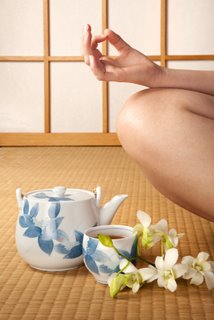 balance Out of Gas
Many of my patients say they can’t understand why they don’t recover from stressful situations like they used to. Things they would normally brush off as “no big deal” continue to affect them long after they should. But this shouldn’t come as a surprise. As their body has adapted to the elevated levels of stress in their lives, their bounce-back ability has steadily declined. By the time they finally notice their body can’t cope, they’re likely already running on empty.
The body’s ability to adapt to the onslaught of stress has long fascinated researchers. Hans Selye, MD, identified the stages of burnout in the 1930s when he described what he called general adaptation syndrome (GAS). Selye originally detailed three stages, but newer research has expanded them to four.
Stage One: Adrenal stress. At this level, you may feel tired or, alternately, mildly stimulated or hyped up; you have trouble falling asleep, catch frequent colds, and maybe even other viral or bacterial infections more easily; you may suffer from headaches, general aches and pains, and mild gastrointestinal disturbances.
Stage Two: Adaptation. If your stress continues unabated, your body may very well adapt to it—as though this level of stress were normal. At this point your body has figured out how to withstand the heightened levels of cortisol and adrenalin coursing through it without apparent injury or damage, and your stage-one symptoms may actually appear to lessen. Think of this stage as the lull before the storm
Stage Three: Adrenal exhaustion. In the face of continuous high levels of stress, your body’s ability to adapt gradually lessens and the first-stage symptoms start to return in a more severe way. In this third stage, the body loses its capacity to resist stimuli that it had previously handled with ease. That means you may suddenly become allergic to things that never bothered you before or get sick over and over again. You may notice all sorts of seemingly unrelated symptoms like insomnia, PMS, low sex drive, low sperm count, difficulty conceiving, anxiety or irritability, more severe gastrointestinal problems, high blood pressure, heart palpitations, and weight gain (or loss).
Stage Four: Physical burnout. Eventually, if you don’t address the things that continue to cause stress in your life—like overwork, personal grief, a demanding job, or a bad relationship—your body’s ability to resist or adapt drops below normal. New symptoms may appear, and your old symptoms may return with a vengeance. At this point you are completely exhausted and fall asleep easily, but you have problems staying asleep. This stage of burnout further breaks down your immune system and can lead to all sorts of chronic illnesses like depression, hypoglycemia, GERD (acid reflux), colitis, chronic fatigue, and even alcohol or drug abuse. Alas, that’s not all that could happen if you don’t tend to your stress levels. Should you have a genetic predisposition to any type of autoimmune disease or severe disorder—rheumatoid arthritis, fibromyalgia, multiple sclerosis, metabolic syndrome, or diabetes—adrenal depletion may trigger its onset.
Depleted adrenal glands lie at the core of burnout. And since all hormones are interrelated, the loss of adrenal function leads to a breakdown in the endocrine and immune systems as well, in the signaling system known as the HPA axis (the hypothalamus, pituitary, and adrenal glands). In this system, the hypothalamus, which acts as the body’s continuous scanning system and ultimate regulator of hormone and organ function, constantly communicates to the pituitary to direct the release of hormones. A 24-7 feedback loop between these glands adjusts to our ever-changing environment, stresses, and needs. If the brain detects a deficiency in one area of the body, it will try, through this HPA axis, to overcome it and balance the system. But when the adrenals (an intricate part of the axis that responds to stressors) burn out and can no longer respond, the whole system breaks down, and the thyroid, digestive system, blood sugar regulation, and sex hormones all suffer as a result.
Turning Burnout Into Balance
 into the calm Chinese medicine has a profound understanding of adrenal burnout, which it calls kidney deficiency, and it looks to specific herbs called tonifiers or adaptogens—in addition to acupuncture, diet, and lifestyle adjustments—to correct the problem.
These herbs have the ability to strengthen the body and, more specifically, the adrenals and the immune system. The most prominent among them, ginseng, has been used in Asia for centuries to increase resistance, stamina, energy, and organ function. Recent research confirms that it acts as an adaptogen in the body, which means that it responds to whatever the body needs without creating unwanted side effects. Adaptogens act more like a super tonic food than a medicine and are not stimulants. Ginseng, reishi mushrooms (and other fungi like cordyceps), rhodiola, astragalus, codonopsis, licorice root, and rehmannia all fall into this class of herbs. Chinese medicine usually combines a number of them in tonic formulas in order to enhance the synergy between them and, thus, the overall effect of each individual herb.
While you can start with a general ginseng or cordyceps formula available at your local health food store, an acupuncturist or doctor of oriental medicine can determine more precisely what your needs are and how best to address them.
Sticking it to Stress
In addition to the tonifying herbs, Chinese medicine has used acupuncture to address imbalance in the body and tune the energetic system for centuries. Interestingly, recent studies have shown that acupuncture has the capacity to actually balance hormones. It causes the body to secrete endorphins, which can typically induce a very relaxed state. Depending on the application, each treatment is designed to reset the system and direct the energy of the body back toward a state of equilibrium. Used in conjunction with the herbs, acupuncture is an effective means of restoring balance and rejuvenating a run-down, burned-out system. Unfortunately, this won’t happen overnight. Even with the best treatment, your body may require six months or more to recover true balance once it has become depleted.
Changing Course
We may live in a high-stress world, but if you’re going to avoid burnout—or reverse whatever level of adrenal deficiency you have—you’ll have to make some conscious changes in the way you navigate life. As a first step, tune in to what your body is telling you and try not to brush off the messages it’s giving you: Tired? Slow down, take a break, go to sleep now. Hungry? Take the time to cook a healthy meal, sit down at the table, and eat.
Next, replenish what has been depleted. Fortunately, Chinese medicine is full of wisdom about how to maintain balance, prevent burnout, and refuel adrenal energy, and the key concept is moderation. I tell my patients to follow these rules:
 get enough sleep! Get enough sleep. Though the amount can vary somewhat, clinical observation still shows that the standard seven to eight hours a night works best for most people. More importantly, the adrenals rejuvenate through the night beginning around midnight—good reason to try to get into bed by 10 p.m., so you’ve got the best shot of being deep into REM sleep when your adrenals start to replenish. If you have trouble sleeping, I suggest trying the Chinese herbal formulas Zizyphus Combination or Bupleurum and Dragonbone formula. Or you can take a combination of L-theanine, 5HTP, and GABA (sublingually) with one of these formulas.
Get the right amount of exercise. This depends more on the individual, but essentially, you need to keep your circulation working regularly by getting some form of cardio workout. Also remember that you should feel good after you exercise. If workouts leave you completely exhausted, you’re probably doing too much, and overtraining can stimulate the adrenal stress response and deplete you as well. If you do train hard, replenish your adrenals by adding yoga, t’ai chi, or qigong to your routine, as the focus on breathing and developing core energy increases your body awareness and leads to profound states of relaxation and, ultimately, to replenishment.
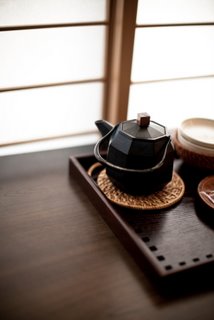 find mindfulness practices like the tea ceremony Eat a balanced diet and cut back on caffeine. A good diet—one that’s rich in fresh fruits and vegetables, lean protein, quality fats, and whole grains—helps maintain balanced blood sugar levels throughout the day. You can also accomplish this by not over- or undereating and making sure each meal contains some protein, fat, and carbohydrate to provide enough fuel to accommodate your particular lifestyle. Don’t skip breakfast. Your body needs to refuel every morning because the brain uses up the liver’s glycogen storage overnight and will begin to digest muscle for energy unless you eat something. In general, if you exercise a lot, you need more fuel than a more sedentary person. But don’t overeat as this puts additional stress on the digestive and elimination systems.
Get more pleasure from life. Relax. Have more fun. Do things that energize you. Get outside no matter what the season. Be in nature. Feel it, observe it. Allow yourself time to feel and think about things of little importance to the world—but vital to you. Do your best to live a life of appreciation and enjoyment.
None of this is earth-shatteringly new—after all, Chinese medicine has been around a long time. But so has stress. We may have more of it today, but that only underscores our need to prevent burnout. Hans Selye said it isn’t the stress that will kill us, but the way we react to it. With the help of Chinese medicine and simple lifestyle changes, you can control that.
Ancient Wisdom
Long before modern science started exploring burnout, the Chinese had already spent centuries observing what happens in people’s lives under different forms of stress. They called it ya li, which means a force that presses down. The Chinese recognized that ya li came from overwork, lack of sleep, poor diet, illness, exposure to heat or cold for too long, or experiencing prolonged emotions such as grief, sadness, and even excitement. These stresses, they noticed, led to fatigue, frequent illnesses, digestive upset, depression, and, eventually, to chronic states of illness.
The ancient Chinese recognized that it was much easier to treat and prevent serious illness before it became deeply rooted. To this end, they observed a person’s life force (qi), as well as her energy levels, pulses, and the brilliance of her eyes, and corrected subtle imbalances using acupuncture and herbs long before the onset of chronic disease.
Stressed Out?
 don't stress...meditate You’re not the only one.
33% of Americans feel they are living with extreme stress.
75% say that money and work are the leading causes of stress.
48% feel that their stress has increased over the past five years.
Source: American Psychological Association study, 2007
Should You Have an Adrenal Test?
You can have your cortisol levels tested to determine the state of your adrenals, but there’s no reason to do so unless:
You rely on caffeine, sugar, and refined carbs to function.
You sleep poorly or not long enough.
You have digestive problems, weight gain, or other symptoms of burnout.
The adrenal stress index (ASI) or temporal adrenal profile (TAP) test measures the free, unbound form of cortisol, which is secreted in a natural 24-hour circadian rhythm that peaks in the morning and slowly decreases throughout the day. The test requires taking four saliva samples at specific times and gives you a value that helps assess your level of adrenal depletion. Diagnos-Techs Inc. (www.diagnostechs.com) performs the laboratory analysis and can refer you to a practitioner in your area who will administer the test.
Once the test establishes where you are on the burnout continuum, an acupuncturist can prescribe a regimen to address your needs. The standard Western protocol of adrenal glandulars or hormone replacement can mask symptoms rather than truly restore function.
1. Herbs
 lemon balm Adaptogen herbs strengthen and tone the adrenals and the immune system. The following herbs—alone or in combination—meet the needs of the body without side effects. Ginseng, reishi (and other) mushrooms, astragalus, licorice root, codonopsis, rhodiola, rehmannia
2. Diet
A balanced diet is especially important to reduce the effects of stress on your digestive system.
Do eat plenty of fruits, vegetables, and lean protein.
Don’t skimp on breakfast.
Do include healthy fats and plenty of whole grains.
Don’t overeat (try to stop when you’re 80 percent full).
3. Sleep
A good night’s sleep—seven to eight hours—can make a big difference when you’re stressed. Can’t sleep?
Try winding down an hour before bed—no TV, no reading, no work.
Do a few gentle, restorative yoga poses to calm your body and mind.
Take a sleepytime “cocktail” of L-theanine, GABA, and 5HTP.
Enjoy a warm herbal bath before getting into bed.
4. Find More Pleasure
Try something new, whether it’s meditation or tennis or kickboxing.
Pair up with a 4-year-old and take a spin on a merry-go-round or swing on the swings.
Be in nature as often as possible.
Call or get together with a friend who can make you laugh until you cry.
Put aside work tonight, get in bed an hour earlier, and pick up one of the books stacked on your nightstand.
Put yoga on your appointment calendar a few times a week.
Begin and end every day with an expression of gratitude.
Get a massage once a month.
Snag a window table, and sit down at the coffee shop instead of taking your latte to go.
Find something that makes you happy and keep it in your life.
5. Exercise
Exercise daily to increase circulation and revitalize your system. A few caveats:
Do focus on activities you love.
Don’t be a weekend warrior—do something physical every day.
Do 15 to 20 minutes of cardio every day.
Don’t overdo it—too much can also deplete your adrenals.
David Scrimgeour, LAc, has been practicing medicine and acupuncture in Boulder, Colorado, for 18 years.
One of the ultimate Zen like experiences is waking-up from a great slumber refreshed and energized. Your mind and body are harmoniously one, both alert and focused. Having a refreshed mind and body are two keys to a natural and Zen lifestyle. Waking up in the morning should not be a loud and abrupt awakening, but rather it should be a peaceful positive experience. The right natural alarm clock can transition your deep and tranquil sleep into a serene start to consciousness. Imagine a long-resonating Tibetan bell-like chime waking you up to a beautiful morning experience.
The right alarm clock can be the most beneficial investment for you. With our Now & Zen natural alarm clock you are awakened more gradually and thus more naturally. Now & Zen is focused on creating a naturalistic lifestyle, and our clocks are an example of our philosophy.
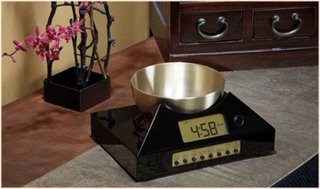 Tibetan Bowl Gong Timer for Meditation and Yoga and a Gentle Alarm Clock Now & Zen – The Zen Alarm Clock Store
1638 Pearl St.
Boulder, CO 80302
(800) 779-6383
Posted in sleep, Sleep Habits
 yawning can help battle stress You’re probably familiar with the situation; you’re sitting in a waiting room, watching the clock. The person sitting across from you yawns and, as if on cue, you also yawn.
Yawning typically signifies tiredness or boredom, yet researchers in Britain have proved otherwise. In fact, “contagious” yawning, that is, yawning after you see someone else yawn, is a sign of empathy.
Back in the day of cave dwellers and nomadic hunters, yawning was a way to raise alertness, as it increased the flow of blood and oxygen to the brain. Scientists think yawning developed into a warning signal, as if a yawn meant to wake up and watch for danger. Yawning was a survival skill.
Nowadays, yawning typically happens after a night with too-little sleep, in a long meeting, or while waiting, yet the contagious yawn still is a warning to wake up. Instead of being used as a warning for possible trouble ahead, yawning is used to silently empathize with your neighbor.
Boulder, Colorado—an innovative company has taken one of life’s most unpleasant experiences (being startled awake by your alarm clock early Monday morning), and transformed it into something to actually look forward to. “The Zen Alarm Clock,” uses soothing acoustic chimes that awaken users gently and gradually, making waking up a real pleasure. Rather than an artificial recorded sound played through a speaker, the Zen Clock features an alloy chime bar similar to a wind chime. When the clock’s alarm is triggered, its chime produces a long-resonating, beautiful acoustic tone reminiscent of a temple gong. Then, as the ring tone gradually fades away, the clock remains silent until it automatically strikes again three minutes later. The frequency of the chime strikes gradually increase over ten-minutes, eventually striking every five seconds, so they are guaranteed to wake up even the heaviest sleeper. This gentle, ten-minute “progressive awakening” leaves users feeling less groggy, and even helps with dream recall.
adapted from Natural Solutions Magazine, Oct. 2011
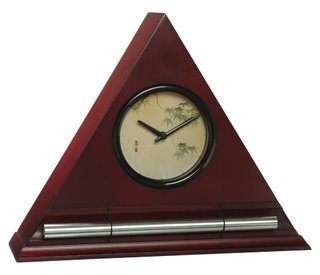 soothing, elegant chime alarm clocks, with real acoustic sounds Now & Zen’s Alarm Clock Store
1638 Pearl Street
Boulder, CO 80302
(800) 779-6383
Posted in Chime Alarm Clocks, sleep
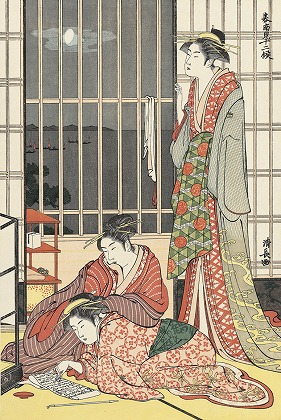 Get Rid of That Beeping Alarm Clock - Kiyonaga Torii, Beauties in September Boulder, Colorado—an innovative company has taken one of life’s most unpleasant experiences (being startled awake by your alarm clock early Monday morning), and transformed it into something to actually look forward to. “The Zen Alarm Clock,” uses soothing acoustic chimes that awaken users gently and gradually, making waking up a real pleasure. Rather than an artificial recorded sound played through a speaker, the Zen Clock features an alloy chime bar similar to a wind chime.
When the clock’s alarm is triggered, its chime produces a long-resonating, beautiful acoustic tone reminiscent of a temple gong. Then, as the ring tone gradually fades away, the clock remains silent until it automatically strikes again three minutes later. The frequency of the chime strikes gradually increase over ten-minutes, eventually striking every five seconds, so they are guaranteed to wake up even the heaviest sleeper. This gentle, ten-minute “progressive awakening” leaves users feeling less groggy, and even helps with dream recall.
One of the ultimate Zen like experiences is waking-up from a great slumber refreshed and energized. Your mind and body are harmoniously one, both alert and focused. Having a refreshed mind and body are two keys to a natural and Zen lifestyle. Waking up in the morning should not be a loud and abrupt awakening, but rather it should be a peaceful positive experience. The right natural alarm clock can transition your deep and tranquil sleep into a serene start to consciousness. Imagine a long-resonating Tibetan bell-like chime waking you up to a beautiful morning experience.
The right alarm clock can be the most beneficial investment for you. With our Now & Zen natural alarm clock you are awakened more gradually and thus more naturally. Now & Zen is focused on creating a naturalistic lifestyle, and our clocks are an example of our philosophy.
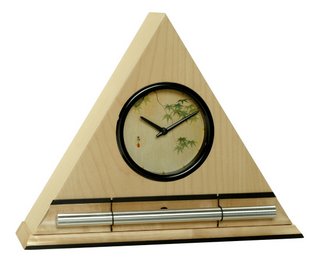 Soothing Chime Alarm Clocks - An Alternative to the Beeping Alarm Clock Now & Zen – The Zen Alarm Clock Store
1638 Pearl Street
Boulder, CO 80302
(800) 779-6383
Posted in Bamboo Chime Clocks, sleep, Sleep Habits, wake up alarm clock
« Previous Page — « Previous Entries
Next Entries » — Next Page »
|
|
|
|